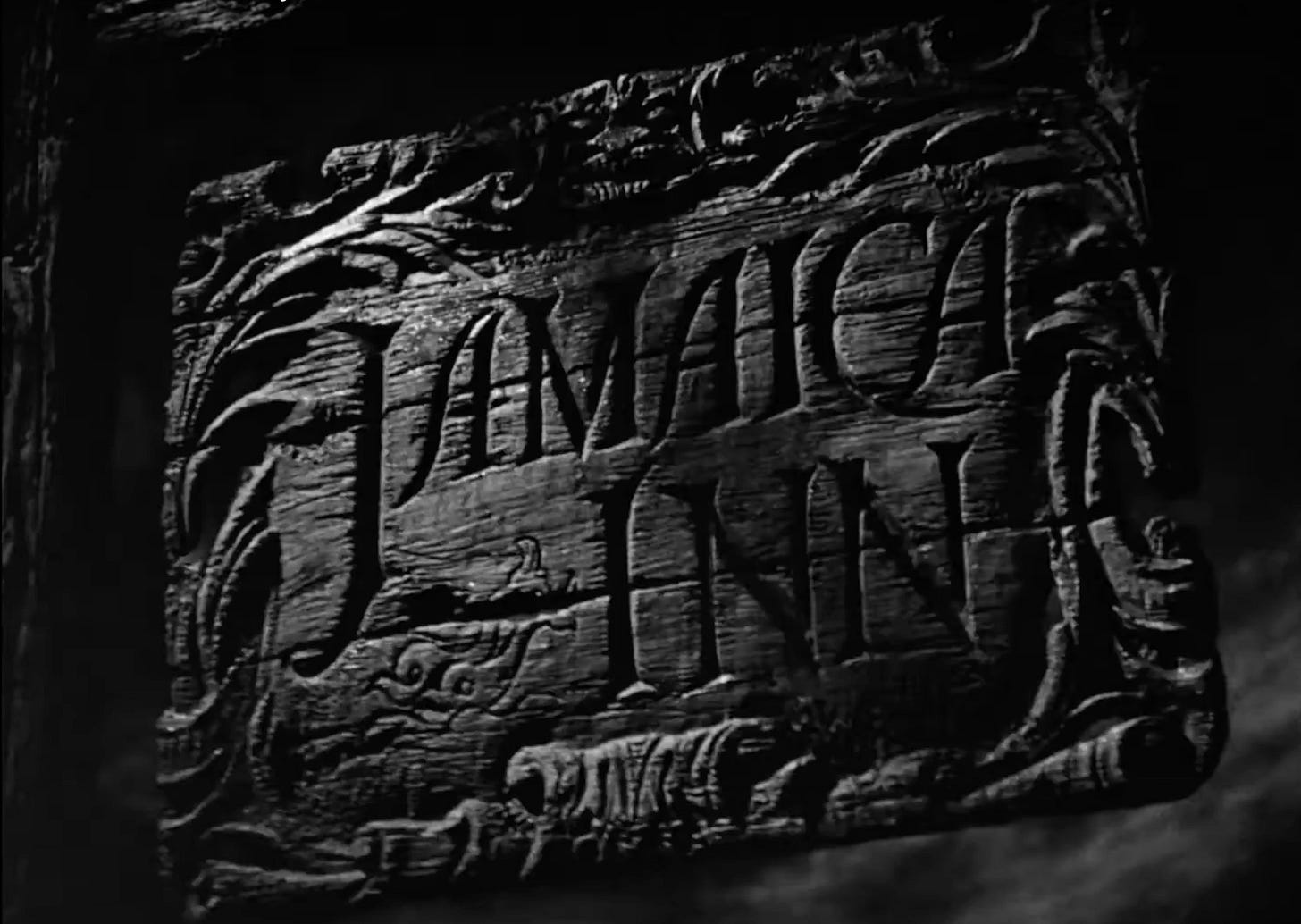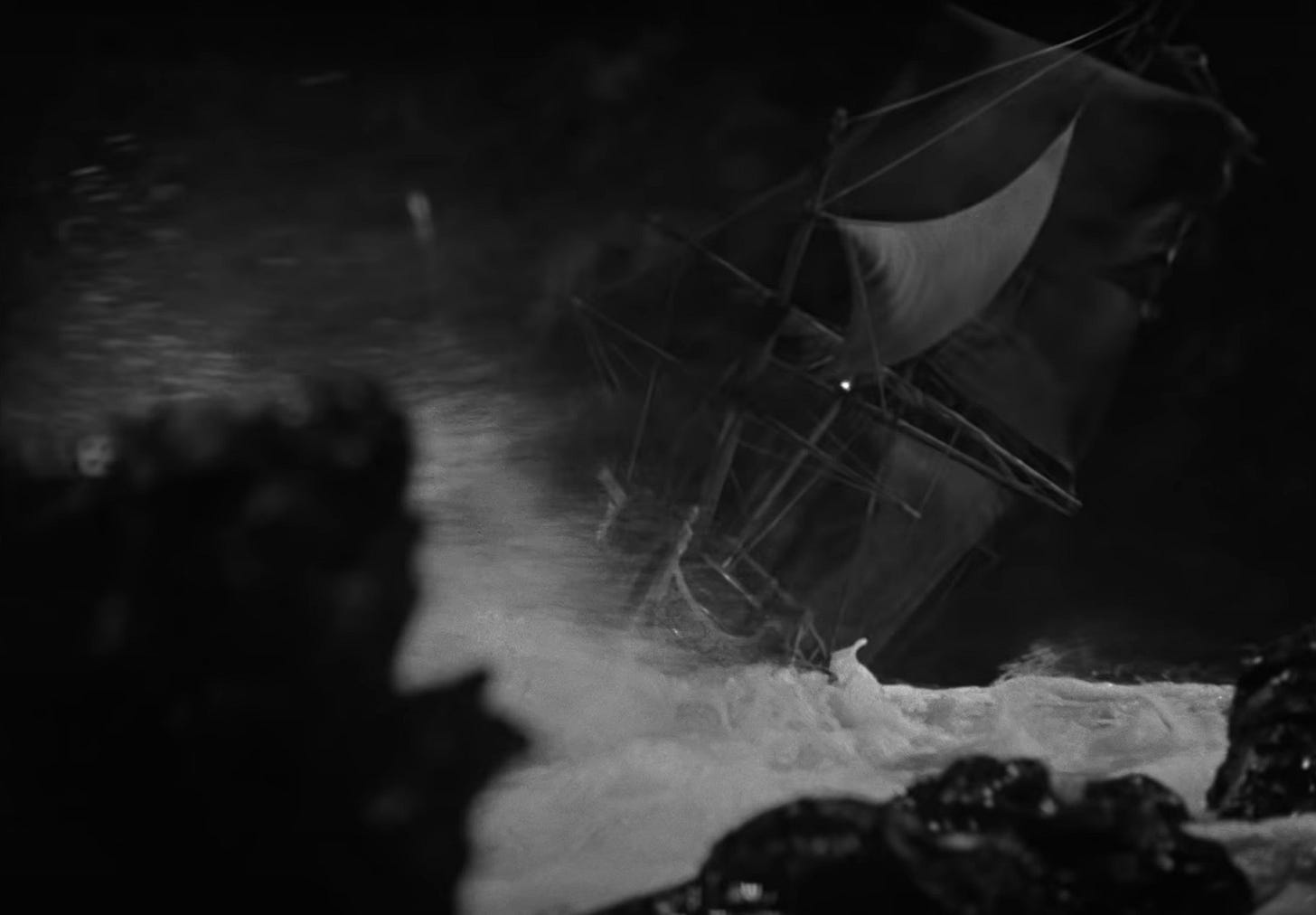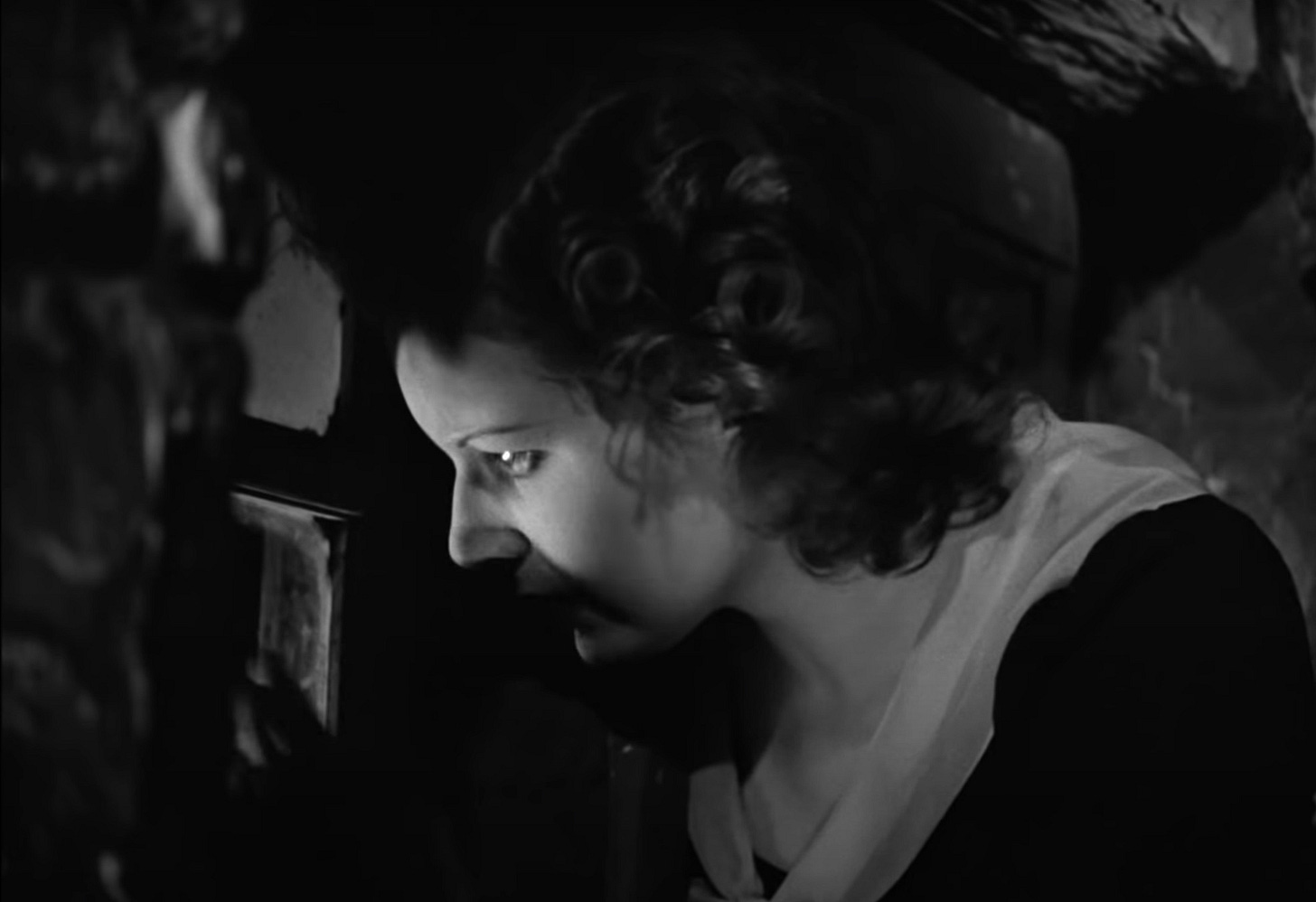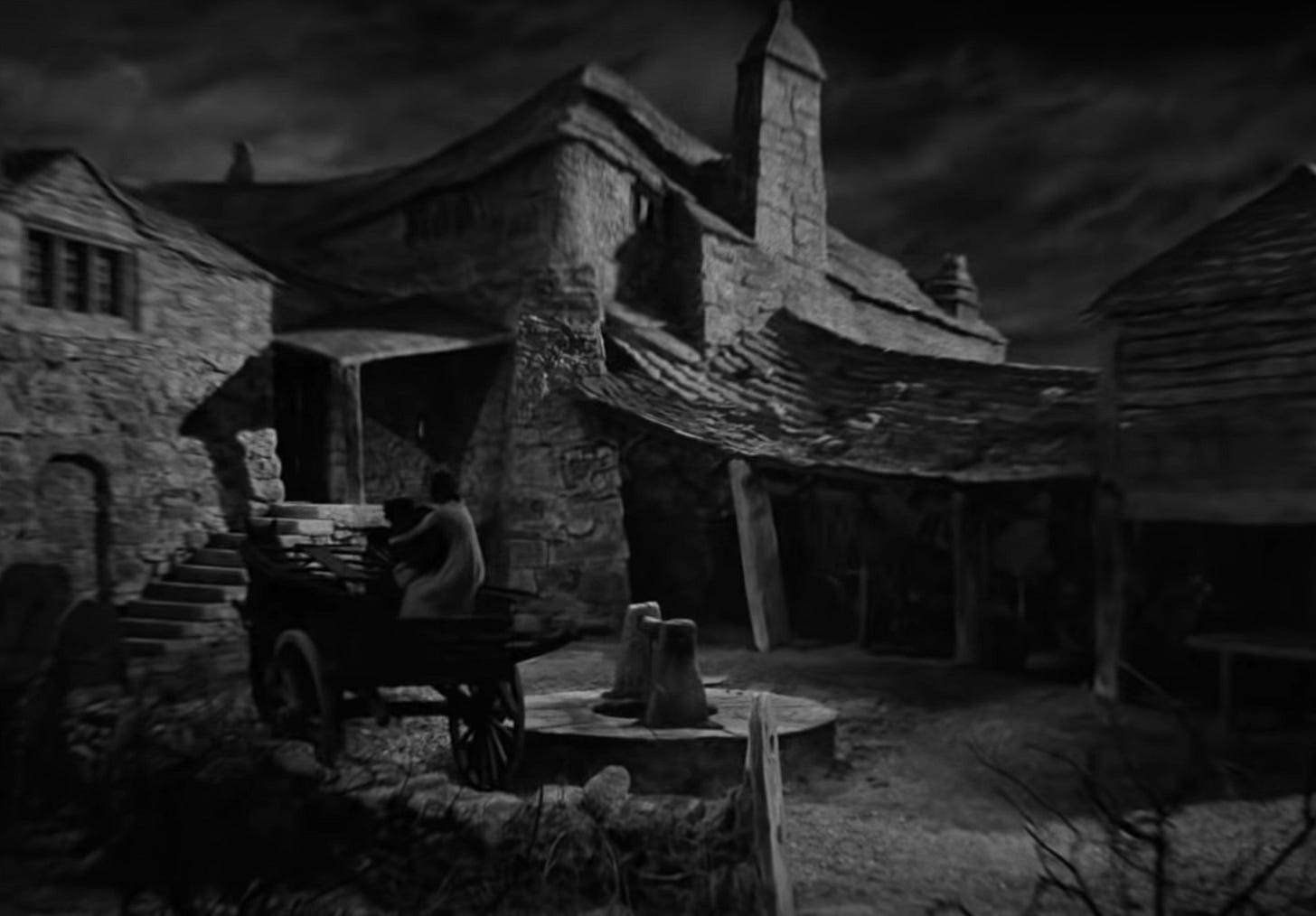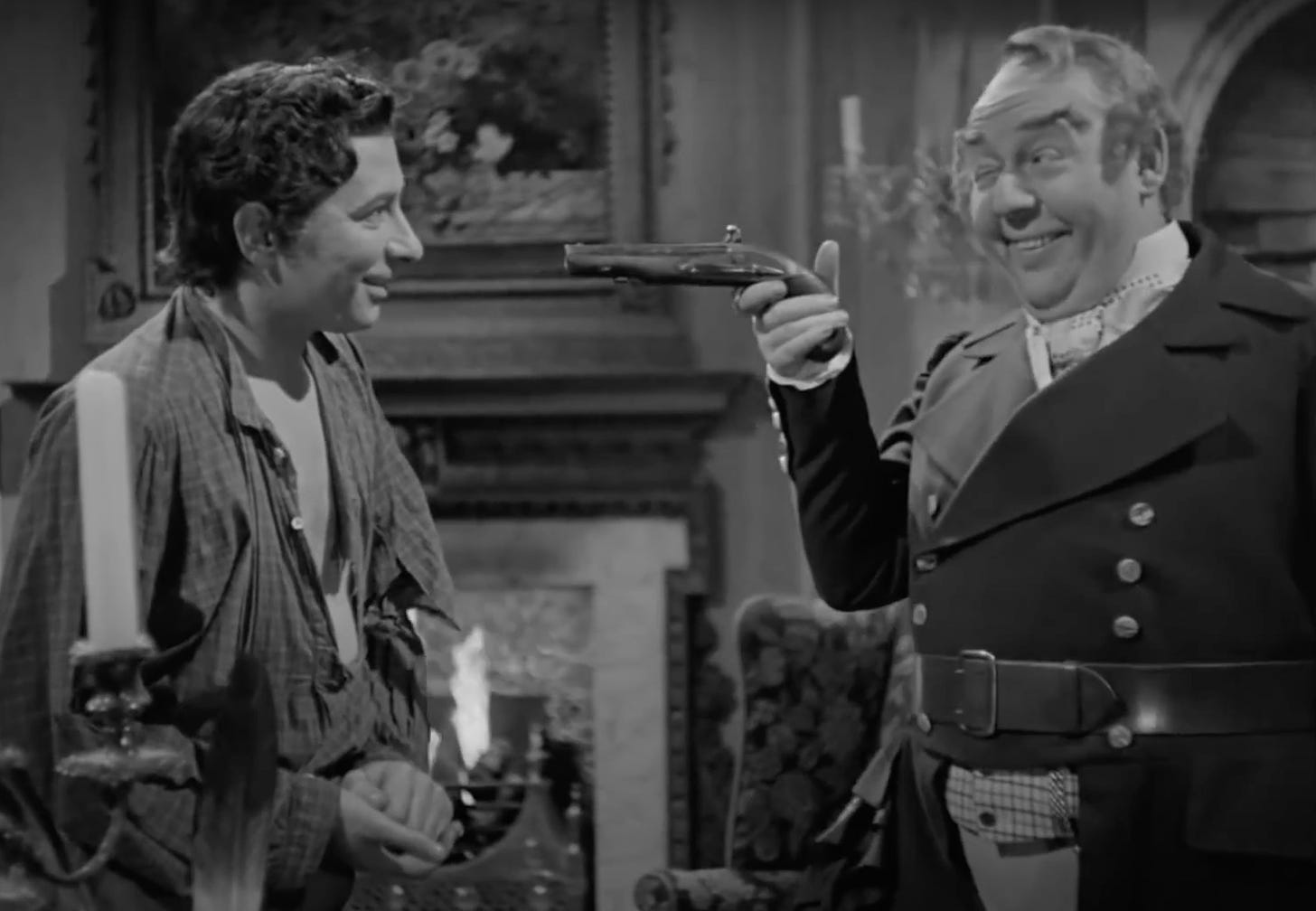By the end of the 1930s, Alfred Hitchcock was already in talks with producer David O. Selznick about heading for Hollywood to direct a Titanic movie. Hot off the critical and commercial success of The Lady Vanishes, the American studio system offered Hitchcock the allure of bigger budgets, higher star power, and wider audiences than he or his peers were typically afforded in Europe. Before his departure, however, German-born film producer Erich Pommer and English star Charles Laughton approached him to direct one more British picture: an adaptation of Daphne du Maurier’s gothic murder mystery, Jamaica Inn.
The film opens with an insert of “an old Cornish prayer”:
“Oh Lord, we pray thee - not that wrecks should happen - but that if they do happen, Thou wilt guide them, to the coast of Cornwall, for the benefit of the poor inhabitants.”
After some exposition, the story begins in earnest with a cloaked figure on horseback dousing a warning beacon atop a cliff face, plunging the coast into darkness. We see the intended result: an approaching cargo ship runs aground. The ship’s crew jump overboard for safety, but they’re surprised by a mob of marauders who kill them and steal their cargo.
The marauders are led by the keeper of the nearby Jamaica Inn, Joss Merlyn (played by The Man Who Knew Too Much’s Leslie Banks), and this is one in a series of midnight raids he’s led. The real mastermind behind the wrecks, we learn, is local justice of the peace, Sir Humphrey Pengallan (played by Laughton), who leverages his connections to find when ships will arrive and plans how to commandeer the cargo. In turn, Sir Pengallan claims the lion’s share of the stolen assets. Their enterprise is disrupted, however, when Merlyn’s orphaned niece Mary Yellen (Maureen O’Hara) comes to the aid of turncoat-marauder Jem Trehearne (Robert Newton), and together they seek to expose this criminal operation.
The bar's set impressively high in the opening sequence and, at least for its time, it’s surprisingly graphic in its violence. But despite the kidnappings, fires, and a second raid at the climax, the movie never again reaches the heights of that sequence and true tension is never achieved.
Widely considered Hitchcock's worst film, Jamaica Inn is a tedious slog, mired by poor performances and implausible character choices. It's at least coherent and followable, unlike Hitchcock’s earlier film Number Seventeen, though after the tight plotting of his previous six films, it’s surprising to see this miss the mark so widely. Critics (and Hitchcock himself) attribute this to the behind-the-scenes battle for creative control. Producer Charles Laughton was at the height of his stardom and, unsurprisingly, felt the film would benefit from more Charles Laughton.
Speaking to Francois Truffaut, Hitchcock had much to say about working with Laughton:
“When we started the picture, he asked me to show him only in close shots because he hadn't yet figured out the manner of his walk. Ten days later he came in and said, 'I've found it.' It turned out that his step had been inspired by the beat of a little German waltz.”
The consensus seems to be that an indifferent Hitchcock signed off on changes and leaps in continuity for Laughton's sake:
“Jamaica Inn was an absurd thing to undertake. It was completely absurd, because logically, the judge (Laughton) should have entered the [plot] only at the end of the adventure. He should have carefully avoided the place and made sure he was never seen in the tavern.”
Originally, du Marier’s novel withheld the reveal of the operation’s mastermind until the third act, thereby making it a proper murder mystery, and also revealed the villain to be a local vicar instead of a justice of the peace, though British censors would not allow a man of the cloth to be depicted on-screen as evil, so the filmmakers had to work around this.
Laughton's dramatic if illogical appearances certainly offer the movie’s most entertaining moments. His hammy, over-the-top performance is a lively contrast to the love story between Maureen O'Hara and Robert Newton’s characters (the latter being woefully miscast here). There’s also some great production design, especially Jamaica Inn itself, that recalls the German expressionist influence more noticeably present in Hitchcock’s earlier films.
Largely profitable, but universally panned, Jamaica Inn is a well-staged but compromised work that marks an unceremonious end to one of the greatest runs in British cinema history.
Friends of the newsletter know we won’t be watching this for our movie club, but for those who want to anyway, there’s a handsome Blu-Ray of Jamaica Inn from Cohen Media Group I recommend. It features a 4K restoration made from a collaboration with the British Film Institute for the film’s 75th anniversary.
Up Next
Rebecca (1940)
—which isn’t currently available from a streamer, but can be found here (at least for the moment).
We’ll be watching the 4K Criterion restoration, the Blu-Ray of which may be found at your local library or video rental store.
The good folks at Scarecrow Video in Seattle, WA have a Rent by Mail service that’s perfect for titles like this.
Cameo
Hitchcock does not have a known cameo in Jamaica Inn.
References
Screen captures sourced from the Cohen Film Collection
The Alfred Hitchcock Wiki: The Hitchcock Cameos
Truffaut, Francois. Hitchcock. United States, Simon & Schuster, 1985.




